Brewers' pitchers, catchers must have tight relationship: 'Getting to know them on a personal level'
PHOENIX, Ariz. -- The success of most organizations relies on the ability of its personnel to work cohesively, and for the Milwaukee Brewers, that rings especially true, especially between to particular positions.
Baseball is broken into different departments on the field. You've got your outfielder group, your infielder group -- and then there are pitchers and catchers, and their relationships have to be very, very tight if they want to be successful.
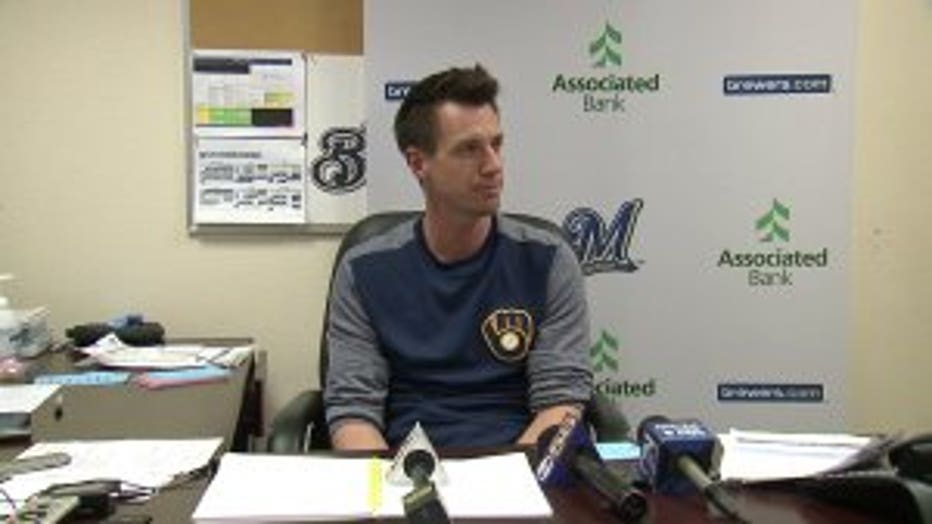
Craig Counsell
"You've got to work at it. You've got to carry it through some tough times once in a while, so it's something that we start, we talk about. You get it out in the open. I think it's important you get that stuff out in the open because it's challenged in tough times," said Craig Counsell, Brewers' manager.
Being the first players to report to spring training and immediately being thrown together, the overall message is clear. It's something veteran catcher Stephen Vogt is used to.
"It's become kind of the norm for every team every spring, so as a catcher, you're always getting to know new guys. We have six or seven weeks to do it here," said Vogt.
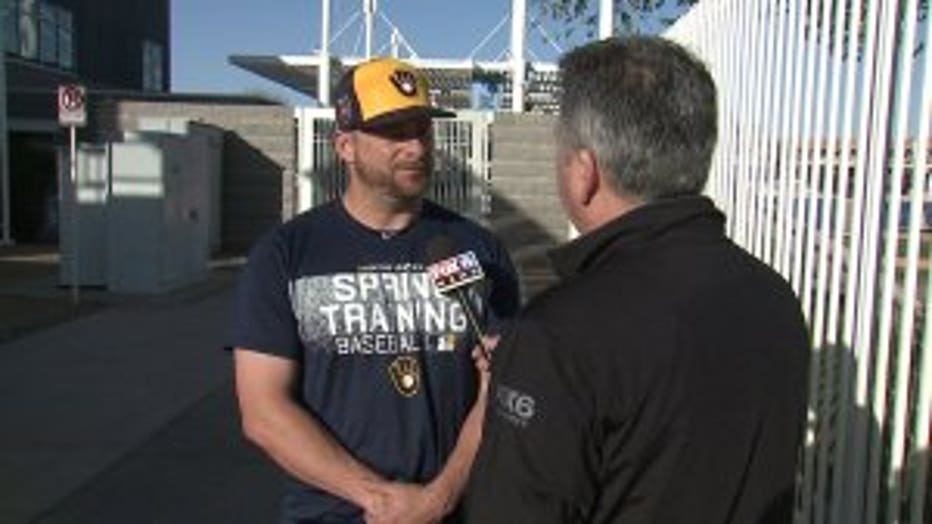
Stephen Vogt
It's a lot more than a pitcher throwing to a catcher.
"For me, it's getting to know them, you know, just talking about their family, talking about where they're from. Getting to know, 'hey, where's your favorite place that you've played so far?' Talking about 'what's your best pitch?' You know, getting to know them on a personal level and then when you get on the field you know some things about them," said Vogt.Jimmy Nelson, who is on the other side of the battery, has a similar perspective.
"It starts with the bullpens and stuff, and they start to learn guys, and they start to learn how guys like to pitch, and then obviously, in the locker room, just hanging around the guys, and off the field, learn their personality and the type of demeanor they have and the mindset they have," said Nelson.
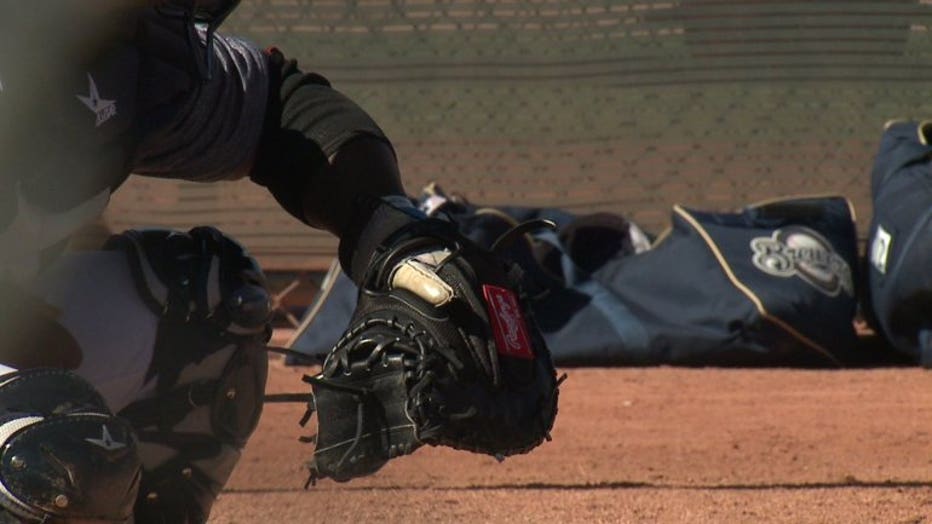
Once the ice is broken, the trust begins to build and it comes easy for closer Cory Knebel.
"They see things and I think all of us are at a point at where 'look, I trust you, you trust me and if I'm not feeling it, I'm going to let you know. If you see that I'm not feeling it, you're going to let me know,' so we have a good relationship," said Knebel.
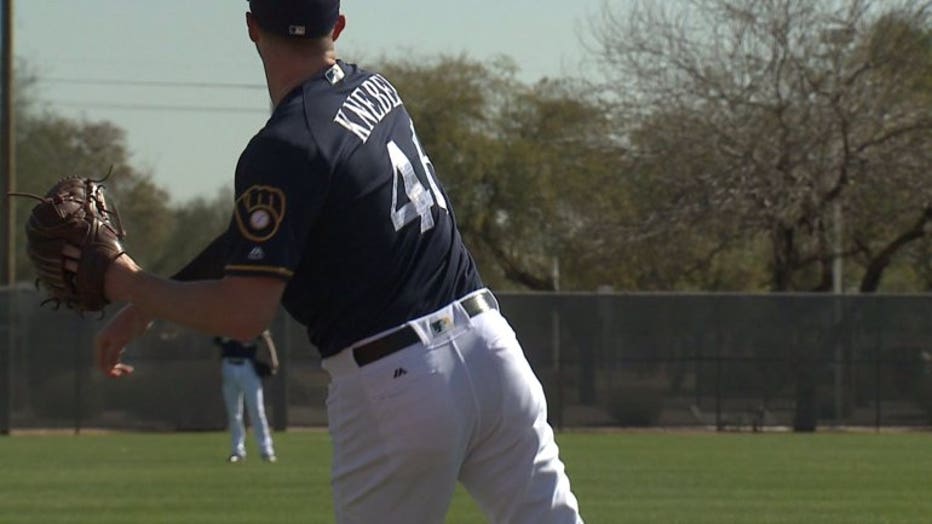
Cory Knebel
That means communicating for catcher Jett Bandy, even if the message is a critical one.
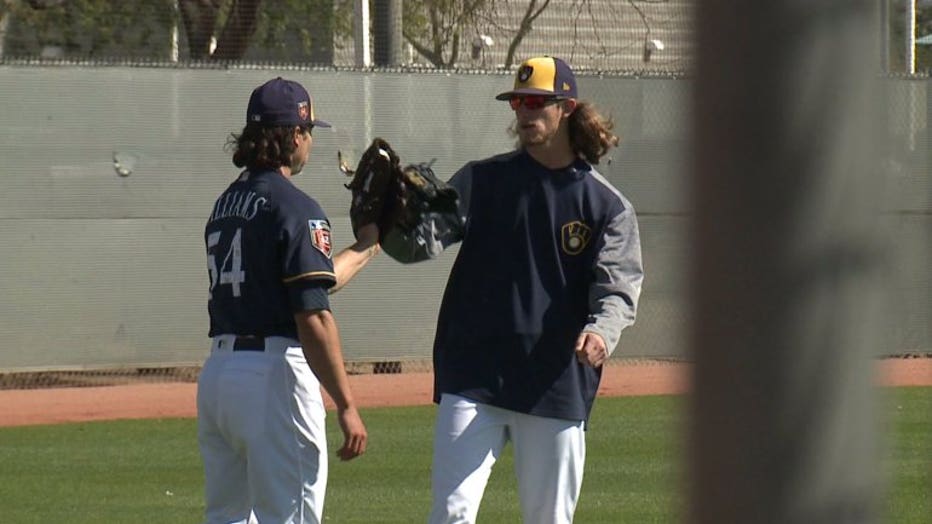
"Get to know which guy to pat on the back or which guy you kind of need to get into a little bit, so everyone's all different -- but that's the job catchers have. We're all connected to everyone here," said Bandy.
Zach Davies has been around the club for a while now, and it's the culture in the organization that seems to make this an easy part of the process.
"Everybody needs to talk about what way that they can get better and what way that we can help each other get better, so I think once guys hear that first meeting, and they realize everybody believes that same openness, it makes everything a lot easier, and at the end of the day, at the end of the season, it makes a world of difference," said Davies.
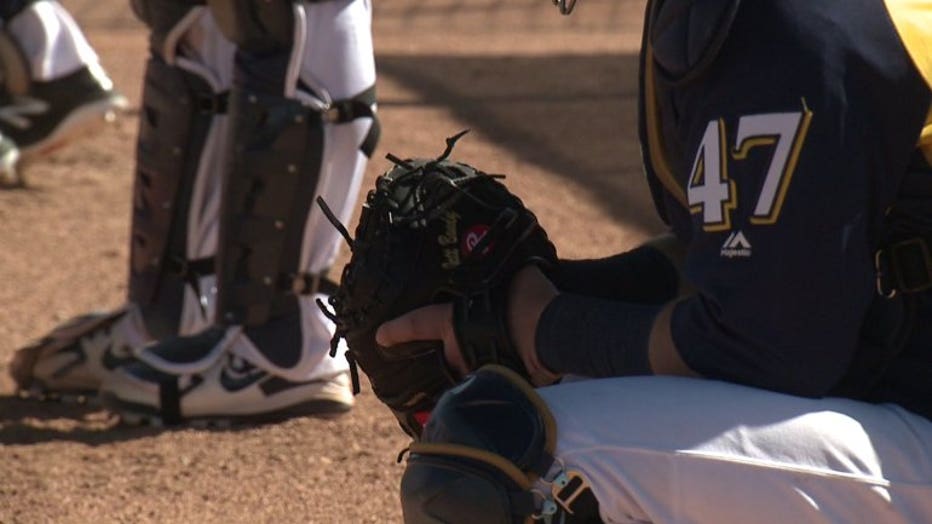
Now that everybody seems to be on the same page, the Brewers are hoping their staff of pitchers works very well with the catchers when the games actually matter.
One thing that will make a difference this season is that all three catchers in camp played at the Major League level with the Brewers last season.

On Thursday, the Brewers begin the 2018 season in San Diego against the Padres.

